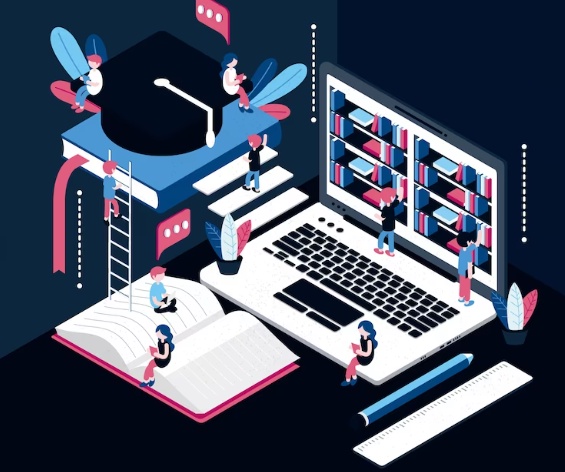In recent years, the emergence of blockchain technology has caused changes in various industries. One sector that will reap significant benefits from this innovation is education. Integrating blockchain into education can revolutionize traditional systems, offering unprecedented benefits to students, educational institutions and stakeholders. This article examines the benefits of using blockchain in education and explores how it can improve security, simplify administrative processes, and authenticate user credentials.
Advantages of Blockchain in Education
Integrating blockchain into education ushers in a new era of security, efficiency and trust. Here are some of the main benefits of integrating blockchain into education:
- Improved data security and integrity
One of the biggest advantages of using blockchain in education is its unparalleled security. Traditional methods of storing educational materials and sensitive information are prone to breaches. Blockchain's decentralized structure and encryption encryption ensures that data is tamper-proof and secure. Each piece of information or block is linked to a chronological chain, which makes it almost impossible to make unauthorized changes. This strengthens student privacy, institutional integrity and overall trust in the education system.
- Academic documents unchanged
Blockchain in education ensures the authenticity of academic documents, mitigating the common problem of fake degrees such as fake diplomas and certificates. Blockchain can solve this problem by creating tamper-proof records of academic achievements. This immutability ensures that employers, educational institutions and other stakeholders can quickly verify the validity of a student's achievements. The cumbersome and time-consuming credential verification process is replaced by seamless and instant blockchain-based authentication, saving time and resources for everyone involved.
- Simplified verification of credentials
The traditional approach to verifying credentials involves contacting educational institutions, requesting transcripts, and verifying grades. With blockchain, this process is simplified and accelerated. Students can grant permission to interested parties, allowing them to access their records directly from the blockchain. This instant access reduces the burden and empowers people to manage their credentials, increasing mobility between academic and professional activities.
- Global accessibility and mobility
The global nature of blockchain technology fits perfectly with the international mobility of students. Blockchain education development removes geographical boundaries by facilitating the transfer of academic records between educational institutions worldwide. The achievements of students seeking education abroad can be monitored in real time, which removes administrative obstacles and promotes the internationalization of education.
- Simplified administrative processes
Institutions struggle with many administrative processes from enrollment to graduation. Blockchain streamlines these processes by providing a secure and transparent platform for storing, managing and sharing data. Such efficiency not only reduces the administrative burden, but also frees up resources that can be directed to improving the quality of education.
- Empowerment through digital identity
Blockchain in education goes beyond academic data. This can form the basis of a secure and portable digital identity for students. This digital identity can include achievements, skills and experiences gained through learning. It allows people to demonstrate their all-round skills to potential employers and educational institutions, enabling a more thorough assessment of their potential.
- Innovative learning platforms
Blockchain opens up opportunities for the development of innovative learning platforms. Smart contracts, which are self-executing contracts with predefined rules, can facilitate automated processes on these platforms. For example, educators could create smart contracts to automate the grading and feedback and ensure transparency and accuracy. Blockchain in education is not just a technological advancement; it is a transformative force that has the potential to shape education worldwide. Integrating blockchain in education is an important step towards modernizing and improving the industry, and Blockchain Development Company's expertise is key to realizing its full potential.
Shamla Tech: Improving Education Through Innovative Blockchain Development
Shamla Tech, a leading blockchain development company, is the perfect choice to pioneer blockchain in education. With extensive expertise and innovative solutions, Shamla Tech excels in harnessing the transformative power of blockchain to revolutionize education systems. They perfectly combine transparency, security and data immutability to create customized blockchain solutions for educational institutions. With Shamla Tech's development expertise and commitment to blockchain to revolutionize education, educational institutions can usher in a new era of efficiency and trust, making them a pioneer in reshaping educational paradigms.


No comments yet